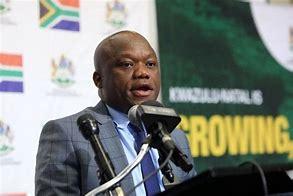
Umm Muhammed Umar
KwaZulu Natal premier, Sihle Zikalala, has claimed that South Africa’s constitutional democracy is an impediment to transformation. The Premier said the ANC should debate doing away with a constitutional democracy in favour of a parliamentary democracy. Meanwhile, last year, Minister Lindiwe Sisulu was embroiled in controversy after attacking the Constitution. Legal expert, and Executive Director of the Helen Suzman Foundation, advocate Nicole Fritz, discussed the issue with Radio Islam.
Fritz explained the difference between a constitutional democracy and a parliamentary democracy, saying, “in a parliamentary democracy, essentially, parliament is the last word, so when Parliament enacts a particular law, that law is the highest authority in the land.” She said, “in a constitutional democracy, it is the constitution that is ultimately sovereign; it is the yardstick, the measure by which we test any conduct, decision, (or) policy. She added that of any law was found to be in violation of the Constitution, it can be struck down for failing to comply with the Constitution. In short, in a parliamentary democracy, the law passed by parliament is sovereign, it is the highest authority, whereas in a constitutional democracy, it is the constitution which is sovereign.
The outcry against Zikalala’s statement, was, according to Fritz, the result of the Constitution having been foundational to ushering in a democracy. Pre-1994, parliament was sovereign. Post 1994, Fritz said, there were, “certain basic norms and values, certain fundamental human rights, that we have had to safeguard and protect, and make sure that even if there was a majority of persons who believed that it was in their interest to push those aside, that they wouldn’t be able to do that, because those rights, those values were safeguarded, in the constitution.” She added that it would be a step back from what 1994 and the coming into being a South African democracy promised. Fritz further expressed concern about Zikalala’s statement, saying that the idea that the Constitutional Court was impeding transformation, was nonsense.
Fritz did, however, agree that the Constitution was not sacrosanct. She said that it contained provisions which allowed for it to be amended, and that it was an evolving document that must support the aspirations and the hopes of South Africans over the long term. She emphasized, “yes, let’s have that healthy, robust, invigorating debate about what our democracy should look like; what the Constitution should look like, what it should contain, but if you’re going to criticize the Constitution, and the courts for the application of the Constitution, you have to be really well versed and know what you’re talking about.” She said that certain people (such as Zikalala and Sisulu), were not really calling for parliamentary democracy, but for a government without laws, saying, “it is a self-interested, self-serving attack, in order to ensure that one’s own interests were forwarded and, as a scapegoat, when you’re a member of the executive, to deflect from one’s own performance and failings.”







0 Comments